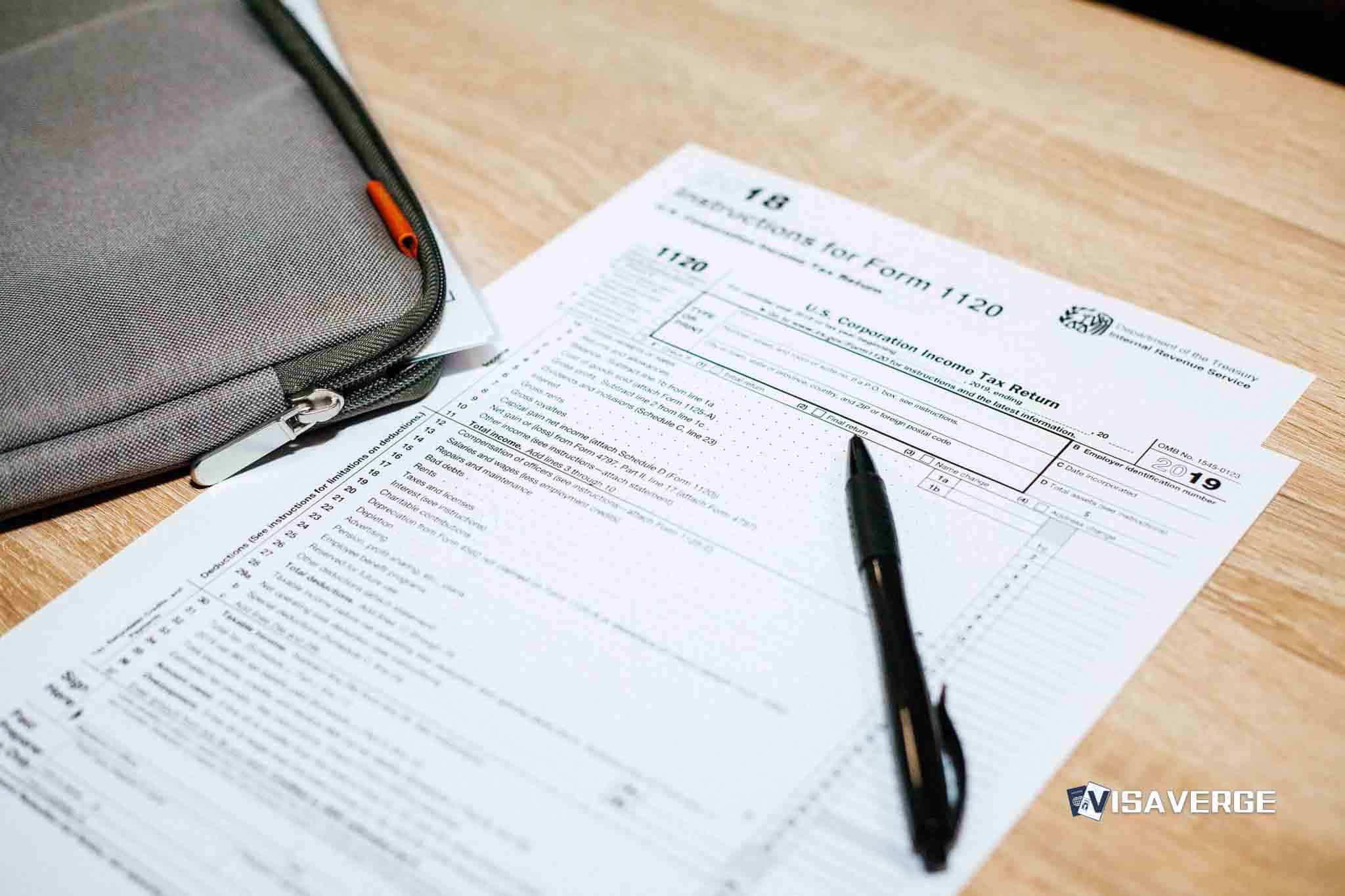The U.S. government has ended the brief period of “indefinite” I-693 validity and replaced it with a tighter rule that links every immigration medical examination directly to the pending application it supports.
Effective June 11, 2025, any Form I-693, Report of Immigration Medical Examination and Vaccination Record, signed by a civil surgeon on or after November 1, 2023 remains valid only while the related application—most often the Form I-485, Application to Register Permanent Residence or Adjust Status—is actively pending with U.S. Citizenship and Immigration Services (USCIS). If that underlying case is withdrawn or denied, the medical becomes invalid, and the applicant must undergo a new exam and submit a new Form I-693 with any future filing. USCIS said the change responds to public health concerns and ensures medical findings used in green card decisions are current and complete.

Why USCIS changed the rule
This policy shift, applying to all applications pending or filed on or after June 11, 2025, reverses a short-lived approach introduced on April 4, 2024. That earlier policy had allowed I-693s signed on or after November 1, 2023 to remain valid indefinitely—even after a denial or withdrawal.
USCIS, coordinating closely with the Centers for Disease Control and Prevention (CDC), concluded that tying I-693 validity to the life of the application protects the public by preventing outdated results from deciding long-running cases. Analysis by VisaVerge.com observes the timing reflects a rebalancing: reducing repeat exams when possible while avoiding reliance on medical records that no longer mirror an applicant’s current health.
Important distinction: a rejection (filing returned because it was not properly filed) is different from a denial. A rejected filing may be corrected and the same sealed I-693 resubmitted. A denied or withdrawn case ends the I-693’s validity.
Key procedural carve-out
- If USCIS rejects a package (for example, incorrect fee) and returns the sealed medical envelope unopened, the same Form I-693 can be resubmitted with the corrected filing.
- If a case is denied or withdrawn, the original I-693 becomes invalid even if the civil surgeon’s signature fell within the period that previously allowed indefinite use.
Form edition rules and dates
- USCIS will accept both the 03/09/2023 and 01/20/2025 editions of Form I-693 until July 3, 2025.
- Starting July 3, 2025, USCIS will accept only the 01/20/2025 edition.
- The edition date must align with the civil surgeon’s signature date, not the mailing date.
- Applicants should confirm the civil surgeon uses the correct edition on the day of exam and signature to avoid processing delays and repeat exam costs.
The three eras of I-693 validity
- Pre‑November 1, 2023 signatures: two-year validity from the signature date.
- April 4, 2024 – June 11, 2025: the short-lived indefinite-validity policy (now rescinded).
- Signatures on/after November 1, 2023 (current rule): I-693 validity is tied to the life of the pending application—invalid if that application is denied or withdrawn.
USCIS officer discretion
USCIS can still require a new medical exam even if the I-693 is technically valid by date rules. Officers may issue a Request for Evidence (RFE) if:
- There are concerns about changes in health.
- Information is missing or lab results are unclear.
- There are indications of a communicable disease or incomplete vaccinations.
The goal: ensure the medical record reflects the applicant’s health at the time of decision, not just at the time of the original exam.
What the medical exam covers (unchanged)
- Form I-693 documents clinical findings, vaccination history, and any treatment or follow-up needed for immigration inadmissibility criteria.
- CDC technical instructions guide civil surgeons on screening for tuberculosis, syphilis, gonorrhea, and other conditions.
- On November 1, 2023, updated systems were implemented for civil surgeons to transmit medical data electronically to public health authorities—these reporting changes remain in effect.
Practical impact for applicants
- The most affected pathway is adjustment of status (Form I-485) for applicants inside the U.S.
- Many file the medical with the I-485 upfront; others wait to submit when USCIS requests it.
- Under the new rule, a medical filed later may avoid re-examination costs if it’s fresher near the decision date. Conversely, submitting early risks invalidation if the case is later denied or withdrawn.
Simple summary of validity under the new framework
- If the civil surgeon signed on or after November 1, 2023: medical valid while the case is pending; becomes invalid if case is denied or withdrawn.
- If signed before November 1, 2023: medical valid for two years from signature.
- If the package is rejected and the sealed envelope returns unopened: the same I-693 can be reused.
- From July 3, 2025, only the 01/20/2025 edition is accepted.
Financial and logistical considerations
- Repeat exams and vaccinations can cost several hundred dollars per adult in metro areas.
- Families and employers should budget for potential repeat exams if they anticipate withdrawal or refile.
- Employers, HR teams, and law firms should time medicals to minimize unnecessary repeats and update intake checklists for past denials/withdrawals.
Guidance for civil surgeons and clinics
- Ensure clinic EHRs/reporting tools capture all required fields and align with CDC instructions.
- Keep form stock current—verify edition before the physician signs.
- Small clinics may need periodic audits to avoid using old templates after July 3, 2025.
- Prepare post-exam checklists for applicants (missing vaccines, lab referrals, follow-up appointments).
Steps applicants can take to avoid repeat exams
- Confirm the civil surgeon is on the USCIS list and using the correct edition of I-693 on exam day.
- Bring a clear vaccine record; if lacking, ask about titers or required vaccines.
- Keep the sealed envelope intact—do not open it (USCIS rejects opened envelopes).
- If a filing is rejected for a fixable reason, reuse the unopened medical with the corrected filing.
- If you anticipate withdrawing and refiling, consider delaying the medical until you’re confident the new filing will proceed.
Special situations and humanitarian cases
- The rule applies across family, employment, and humanitarian contexts (e.g., VAWA self-petitioners, Special Immigrant Juveniles).
- Those who withdraw and file anew must plan for a fresh I-693.
- Local nonprofits and legal aid groups sometimes partner with clinics to lower costs—ask about sliding scales or community vaccine clinics meeting CDC standards.
How officers decide to request new medical evidence
Key factors for officer discretion:
- Condition-based risk (e.g., communicable diseases).
- Completeness of the record (missing vaccines or labs).
- Recency—does the medical reflect current health at decision time?
An RFE for a new I-693 is routine in many cases and is designed to ensure public health standards are met rather than signal an adverse legal posture.
Practical checklist to keep during the process
- Civil surgeon appointment date
- Edition of the form used
- Vaccine records provided
- Lab referrals and results
- Date the sealed envelope was handed over
Keep copies of everything except the sealed envelope itself; a scanned copy of the signed I-693 is useful for records and attorney review.
Timing strategies
- If local field office adjudication is quick, submit I-693 with I-485 to speed processing.
- If long queues or likely refiling, wait until prompted to keep the medical current.
- Align the medical so it’s fresh near the predicted adjudication window when possible.
Policy snapshot
- Effective date: June 11, 2025 — applies to all applications pending or filed on or after this date.
- Core rule: For civil surgeon signatures on or after November 1, 2023, I-693 validity lasts only while the associated application is pending.
- Older signatures: For I-693s signed before November 1, 2023, a two-year validity remains.
- Rejection exception: Reuse allowed if the sealed envelope returns unopened after a rejected filing.
- Edition control: Until July 3, 2025, USCIS accepts 03/09/2023 and 01/20/2025 editions. On/after July 3, 2025, only 01/20/2025 accepted.
Official resources
- Form I-693: USCIS – Form I-693
- Form I-485: USCIS – Form I-485
- USCIS Policy Manual, Volume 8: USCIS Policy Manual, Volume 8
These government sources include instructions, edition dates, civil surgeon finders, and CDC technical instructions used by examiners.
Final takeaways
- The new rule links I-693 validity to the life of the application for signatures dated on or after November 1, 2023.
- The July 3, 2025 edition switch to 01/20/2025 is a critical operational deadline.
- Careful timing, complete vaccine records, and confirming the correct form edition with the civil surgeon are the best ways to avoid delays and unexpected costs if plans change mid-process.
Frequently Asked Questions
This Article in a Nutshell
USCIS revised I-693 validity rules effective June 11, 2025. For I-693s signed on or after November 1, 2023, validity now lasts only while the related application—usually Form I-485—is actively pending; if that application is denied or withdrawn, the medical becomes invalid and a new exam is required. Rejected filings returned with the unopened sealed I-693 can reuse the same medical. USCIS will accept both the 03/09/2023 and 01/20/2025 editions until July 3, 2025; after that date only the 01/20/2025 edition is accepted. The change aligns USCIS with CDC concerns about relying on outdated medical results. Applicants, employers, and civil surgeons should confirm form edition on exam day, keep vaccine records, and time exams to reduce repeat costs and delays.







